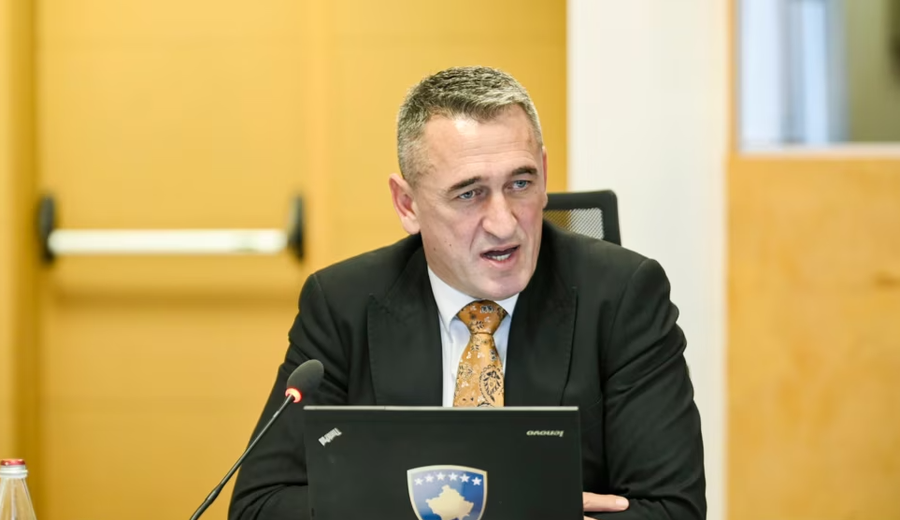
The leader of the Party for Freedom, Justice and Survival from the Serb community, Nenad Rašić, said that he is not optimistic that on April 15 - when the session for the constitution of the Kosovo Assembly is scheduled - the new executive can be formed.
He made these statements after he was registered as a deputy of the ninth legislature in the Assembly of Kosovo.
"I am not optimistic that we will vote for the Government tomorrow," said Rasic.
The April 15 session will feature the swearing-in of MPs and the election of the Speaker and Deputy Speakers of the Assembly. Rašić said he will attend the session and vote for the Speaker, who should be proposed by the Vetëvendosje Movement, "if there is a reasonable proposal."
Rashic, who is currently the acting Minister for Returns and Communities, said that the process of forming new institutions resulting from the February 9 parliamentary elections is a long process.
"It is not the first time that a short impasse can occur. I remind you that in 2014 we had such a situation, then I was also an MP, but after two-three months that crisis was resolved. In this case, I am considering that the best option would be for the largest party to form the government because any other option would complicate the process, whether of democratization, or of government leadership, or of Kosovo's rapprochement towards the EU. Therefore, the best option at this moment is for the largest party to take on the responsibility of leadership," said Rashiq.
He won one of the ten seats reserved in the Kosovo Assembly for the Serb community. The other nine were won by the Serbian List, the party of Serbs in Kosovo that enjoys the support of Belgrade.
The Vetëvendosje Movement, the winning party in the February 9 elections, has the right to propose the speaker of parliament and be the first to be mandated to form the government. For both the speaker of parliament and the government, this entity needs 61 votes.
Earlier, the head of this entity, Albin Kurti, had stated that he planned to vote on the Speaker of the Assembly and the formation of the Government on the same day.
Acting Prime Minister Kurti's LVV had also previously stated that it preferred to create new institutions with non-Serb communities, but has recently admitted that it also needs cooperation with Albanian parties that have won seats in the Assembly.
In the Kosovo Assembly, out of 120 seats, 20 are reserved for non-majority communities: ten for the Serbian community and ten for other communities.
But Kurti's party is not even sure of the ten votes from non-Serb communities, which have traditionally supported the ruling coalition. Most of the non-Serb parties have said they would vote for an LVV executive, but some have made some demands.
If LVV fails to secure 61 votes for the Government, then it is up to President Vjosa Osmani to mandate the party that ensures it has the votes for the executive.
The Democratic Party of Kosovo came second in the elections with 24 MPs, the Democratic League of Kosovo won 20 seats, and the Alliance for the Future of Kosovo and Nisma coalition have eight MPs.
PDK has said that it is ready to take responsibility for forming the executive, if its turn comes. This party, which has said that it has no red lines for any subject, has said that it nevertheless prefers a governing coalition with the parties that were in opposition in the previous legislature./ REL (A2 Televizion)











